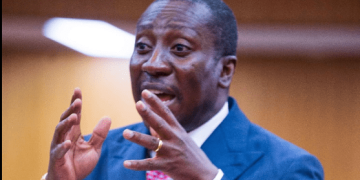Since independence, we have practised a model of politics and political economy in which our national political leadership use patronage jobs as both a conduit and a substitute for delivering “development” to local communities. Under this model of politics and “development”, appointment of a native son or daughter to an “important” (read, “lucrative”) position in Government or the public services is seen as a way of channeling and delivering “development” resources and opportunities to their communities, as those appointees are expected, both by the appointer and by their communities, to use their public positions to improve the material fortunes of their indigenous constituents and communities.
Naturally, not all beneficiary appointees honour this unwritten social contract that comes with their appointments. Many use their public offices predicably for self-enrichment, with little opportunity trickling down to their co-ethnics. Some, of course, use their privileged appointments do “trickle” down some “development” (jobs, contracts, etc) to their co-ethnics, and by so doing become local hometown heroes and patrons, securing their political careers in the process.
The upshot of this dysfunctional model of “spreading” or distributing development is that it enriches the individual beneficiaries without developing or changing the collective fortunes of their communities. This “development by patronage” model also implicitly fuels corruption and nepotism and makes fighting corruption politically tough, because corruption involving a hometown patron and hero is seen and defended by the appointees’ co-ethnics as getting their share of the national cake.
Despite the obvious downsides of the “development by patronage” model, patronage appointments has significant signalling effects, including signalling “inclusion” or “exclusion” to the disparate ethnic groups that constitute our national polity. In that respect, it may foster social cohesion, if it is seen by all as representially “inclusive”.
The danger, however, is that ethnic groups could become fixated on the symbolic or optical inclusion that “development by patronage” projects and allow that to become a substitute for real inclusive and balanced spatial or regional or local development. Indeed, in many important respects, we have allowed “development by patronage” to become a substitute for government delivering real, meaningful and balanced and inclusive development to all communities and regions across the country. By so doing, we have allowed governments and national leadership to get off too lightly.



















































































